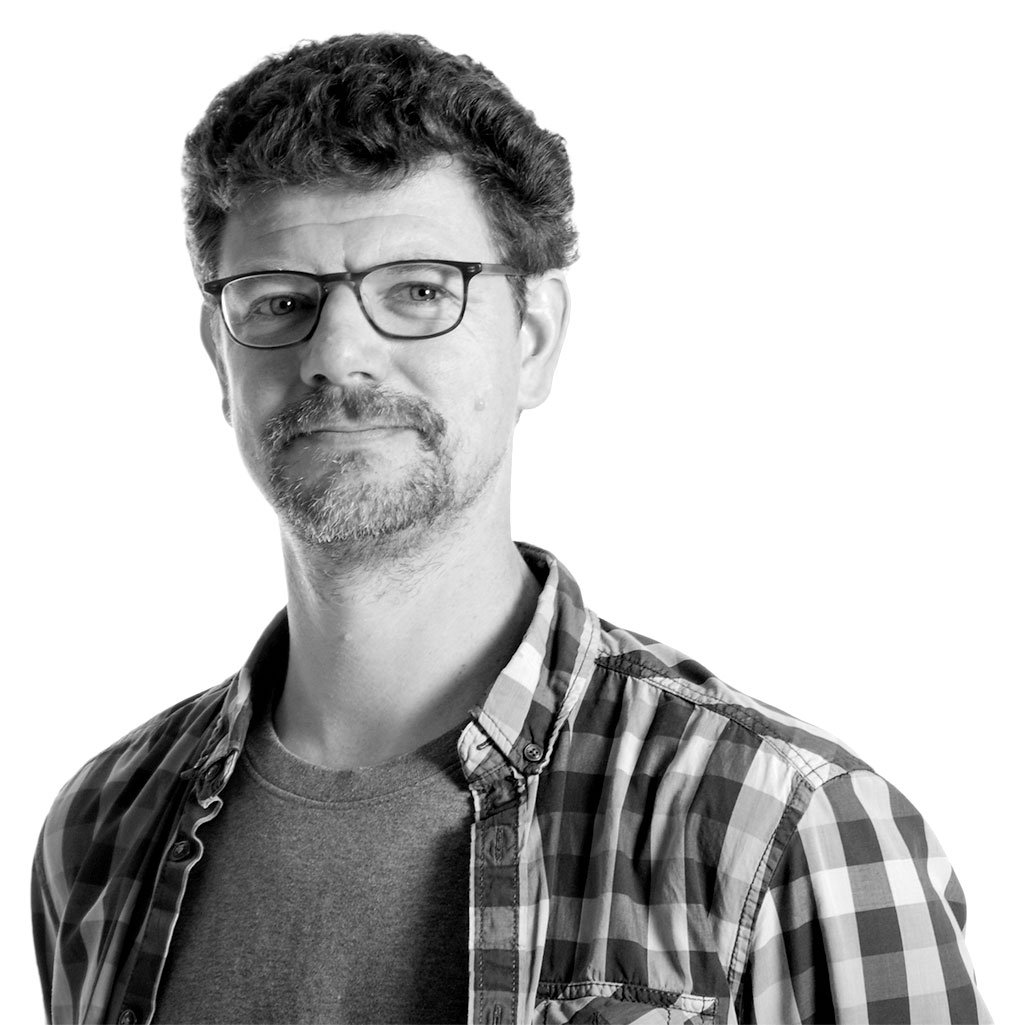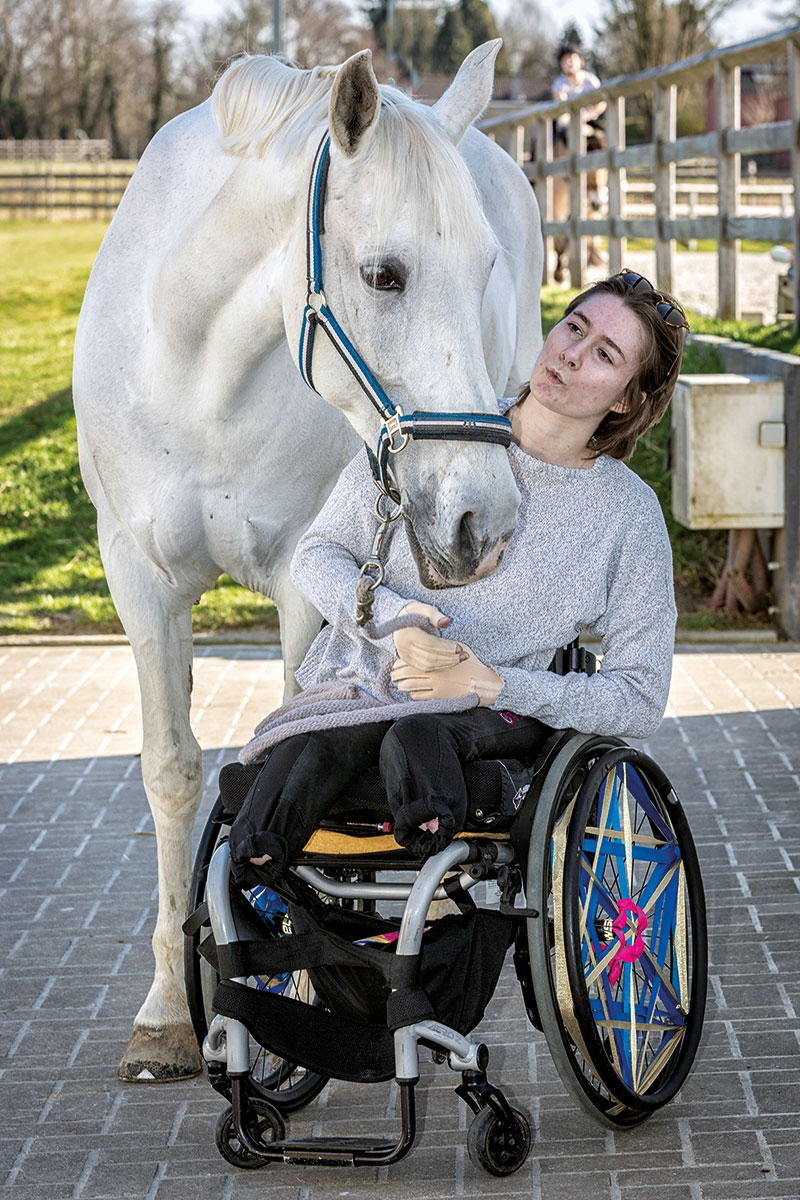
| An aggressive protester during a demonstration against Covid safety measures on 23 January 2022 in Brussels, Belgium. |
Photo Kristof Vadino
Memorial card tells the story of hasty error
The climate for journalists has become bleak. But that doesn’t change our duty to continue building credibility and trust. Just give us the time to do so.

Steven De Bock was still a student when he took his first steps into journalism with Het Volk in the 1990’s. Until recently, he was head of news at Nieuwsblad, but since September he's back doing what he enjoys most: writing articles.
His memorial card sat on my desk for years. Patrice Braut. An unknown man from Brussels who suddenly became known, being the only Belgian victim of 9/11. It was there because for me, Patrice Braut also represented something very different: a crucial lesson in journalism to beware the rush job.
I’d created a portrait of him. I’d rushed to visit his parents, and against a tight deadline I’d written the story up afterwards. Then I went home, with a slight gnawing feeling in my stomach. The next day it became clear why: I’d given Patrice the wrong first name.
You could say it was a detail. No one pulled me up on it. Maybe no one even saw it. But for me, it was a source of great shame. And it was a lesson. One I wanted to remember, by always keeping the card next to my keyboard.

There’s an anger in society that’s also directed against us journalists
We’re many years down the road, now. The card has disappeared in some move or other, a sad consequence of the clean desk policy. And, honestly, I have to confess that when writing this piece I even had to check for a moment what Patrice Braut’s name was. But I’ve never forgotten the lesson itself. And when I’m tempted to go too fast again, it helps me to dial things back a bit. Because some 20 years on, that lesson is perhaps more relevant than ever. Digitisation has made everything so much faster, and that creates the risk of so many mistakes. The chances of journalists or news outlets being punished for a mistake are greater than ever, too. Before you have a chance to correct it, a stupid mistake can cause a storm on Twitter. Carelessness caused by haste is enough to give extra fuel to that now familiar rant: “You can’t trust them, the mainstream media.”
These are tough times for journalists. The online world is busier than ever. New players, new forms of communication. We have to contend with an endless stream of fake news flooding the world via social media. And with those same Twitters and Telegrams, extreme voices have found a forum where they can attack our credibility. An army of mini Donald Trumps. Toxic, nasty, exhausting. And they find fertile ground. After all, there’s an anger in society that’s also directed against us. It leads to verbal hostility, which occasionally even becomes physical.
The Netherlands is discussing ways to protect journalists and journalism. Talks between editors, unions and the government are also happening in Flanders. There is real cause for concern. Journalists reporting on cocaine gangs fear they could be targeted personally. And those fears are justified. Journalists who report on violent demonstrations seem to get a share of the blows – from rioters and forces of law and order – more often than before. And there’s that looming, unpleasant feeling that you could quite unexpectedly find yourself at the centre of a Twitter storm, when values such as respect and privacy suddenly fly out of the window.
And on top of all these problems, there’s also that “angry citizen”, who “doesn’t believe anything the mainstream media says” and who reacts with sometimes surprisingly vehement hostility. The question is how we convince them of our credibility and good intentions. And more than ever, I think the answer is: by persevering.

Beatrice de Lavalette lost her legs in the Brussels terrorist attacks. She is now a Paralympic athlete.
Photo Guy Puttemans
Of course, we have to constantly question ourselves. Of course, there is always room for improvement. But at the same time, I look with pride at how we in the newsroom do our jobs. I see colleagues who gave their all during the pandemic. Who in record time became experts in the subject, doing their utmost to answer all the questions that were flying around. Quickly, clearly, accurately. I see colleagues diving deep into political issues to uncover what’s really going on. And I see colleagues trying to translate complex, technical stories into clear language. By getting out on the street and seeking out the people involved. The nitrogen debate is also a story of human tragedies among farmers. The pandemic is also about elderly people who died alone. The crèche scandal is about worried parents, but also about well-meaning crèche operators in danger of going bankrupt. And the asylum crisis, that’s also about Latib in his tent on the bridge and about Katrine bringing him hot soup.
Ask me what Nieuwsblad stands for, and there is your answer. It’s that combination. Ask me what reliable journalism stands for and the answer remains the same. For clear answers to the questions people are asking. For clear insights, especially when the situation is murky. And above all, it’s about listening to those in danger of being forgotten. It’s those people whose door we need to knock on and tell them, “I’m here, tell me, I have time.”

I was rushing and got a victim’s name wrong. His memorial card reminds me
Just how important that is is something I experienced myself recently, in the trial of the Brussels terrorist attack. Those attacks at the airport and Maelbeek metro station have become almost abstract for many people. We say they were “awful” and “horrible” and “terrible”, but we feel very little about them any more. Until you’re sitting at the table with a woman who saw it happen before her eyes, and you see her shrink as she recounts it again. And then in addition to the pain, you understand the anger and disappointment. Because since the attack, she has been caught up not only in her trauma but also in an administrative merry-go-round.
So, let us examine whether we can and should better protect journalists from real dangers. But at the same time, let us continue to work on our own credibility. By taking the time to get to the bottom of even difficult issues and inform our readers accurately. By investing time in the story of the people affected. By keeping sufficient contact with real world. The world of those angry people, yes, but also the world of the others, who may shout much less on Twitter but are just as relevant. People doing their best to make society a little nicer. People trying to turn their anger into something positive. Or people who need help but don’t know where to look for it.
All this takes time. Time that appears to be in short supply in the hectic news cycle we now live in. Because the deadline too often seems to be “now”. Whereas time – time spent productively – can be a powerful weapon in the battle we face for our credibility. I should look for that memorial card again. The desk doesn’t have to be so clean.